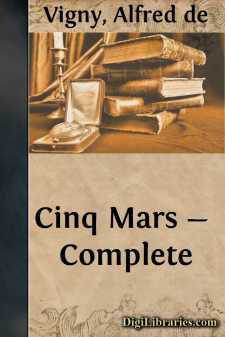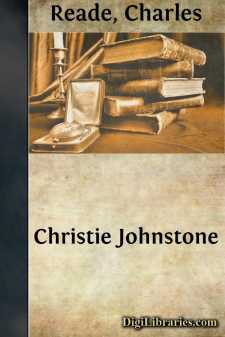Fiction
- Action & Adventure 180
- Biographical 15
- Christian 59
- Classics 6965
- Coming of Age 5
- Contemporary Women 3
- Erotica 8
- Espionage/Intrigue 12
- Fairy Tales, Folklore & Mythology 236
- Family Life 169
- Fantasy 117
- Gay 1
- General 596
- Ghost 32
- Historical
- Horror 43
- Humorous 159
- Jewish 25
- Legal 4
- Medical 22
- Mystery & Detective 315
- Political 49
- Psychological 41
- Religious 64
- Romance 158
- Sagas 11
- Science Fiction 730
- Sea Stories 113
- Short Stories (single author) 537
- Sports 10
- Suspense 1
- Technological 8
- Thrillers 2
- Urban Life 31
- Visionary & Metaphysical 1
- War & Military 173
- Westerns 199
Historical Books
Sort by:
CHAPTER I I There should be no sight more happy than a young man riding to meet his love. His eyes should shine, his lips should sing; he should slap his mare upon her shoulder and call her his darling. The puddles upon his way should be turned to pure gold, and the stream that runs beside him should chatter her name. Yet, as Robin rode to Marjorie none of these things were done. It was a still day of...
more...
CHAPTER I. Squire Thorndyke, of the Manor House of Crawley, was, on the 1st of September; 1782, walking up and down the little terrace in front of the quaint old house in an unusually disturbed mood. He was a man of forty three or four, stoutly and strongly built, and inclined to be portly. Save the loss of his wife four years before, there had been but little to ruffle the easy tenor of his life. A...
more...
"Pe far la to vendetta,Sta sigur', vasta anche ella." —Vocero du Niolo. Early in the month of October, 181-, Colonel Sir Thomas Nevil, a distinguished Irish officer of the English army, alighted with his daughter at the Hotel Beauveau, Marseilles, on their return from a tour in Italy. The perpetual and universal admiration of enthusiastic travellers has produced a sort of reaction, and...
more...
by:
Georg Ebers
CHAPTER I. Gorgias, the architect, had learned to bear the scorching sunbeams of the Egyptian noonday. Though not yet thirty, he had directed—first as his late father's assistant and afterwards as his successor—the construction of the huge buildings erected by Cleopatra in Alexandria. Now he was overwhelmed with commissions; yet he had come hither ere the hours of work were over, merely to...
more...
The history of the ruin of Antony and Cleopatra must have struck many students of the records of their age as one of the most inexplicable of tragic tales. What malign influence and secret hates were at work, continually sapping their prosperity and blinding their judgment? Why did Cleopatra fly at Actium, and why did Antony follow her, leaving his fleet and army to destruction? An attempt is made in...
more...
CHAPTER I The landlord, the lady, and Mr. Charles Wogan were all three, it seemed, in luck's way that September morning of the year 1719. Wogan was not surprised, his luck for the moment was altogether in, so that even when his horse stumbled and went lame at a desolate part of the road from Florence to Bologna, he had no doubt but that somehow fortune would serve him. His horse stepped gingerly...
more...
by:
Emily Sarah Holt
Little Clare’s first home. “The mossy marbles restOn the lips he hath pressedIn their bloom,And the names he loved to hearHave been carved for many a yearOn the tomb.” Oliver Wendell Holmes. “Cold!” said the carrier, blowing on his fingers to keep them warm. “Cold, bully Penmore!” ejaculated Hal Dockett,—farrier, horse-leech, and cow-doctor in ordinary to the town of Bodmin and its...
more...
by:
Alfred de Vigny
ALFRED DE VIGNY The reputation of Alfred de Vigny has endured extraordinary vicissitudes in France. First he was lauded as the precursor of French romantic poetry and stately prose; then he sank in semi-oblivion, became the curiosity of criticism, died in retirement, and was neglected for a long time, until the last ten years or so produced a marked revolution of taste in France. The supremacy of...
more...
by:
Walter Scott
INTRODUCTION TO CHRONICLES OF THE CANONGATE. The preceding volume of this Collection concluded the last of the pieces originally published under the NOMINIS UMBRA of The Author of Waverley; and the circumstances which rendered it impossible for the writer to continue longer in the possession of his incognito were communicated in 1827, in the Introduction to the first series of Chronicles of the...
more...
by:
Charles Reade
CHAPTER I. VISCOUNT IPSDEN, aged twenty-five, income eighteen thousand pounds per year, constitution equine, was unhappy! This might surprise some people; but there are certain blessings, the non-possession of which makes more people discontented than their possession renders happy. Foremost among these are "Wealth and Rank." Were I to add "Beauty" to the list, such men and women as go...
more...











